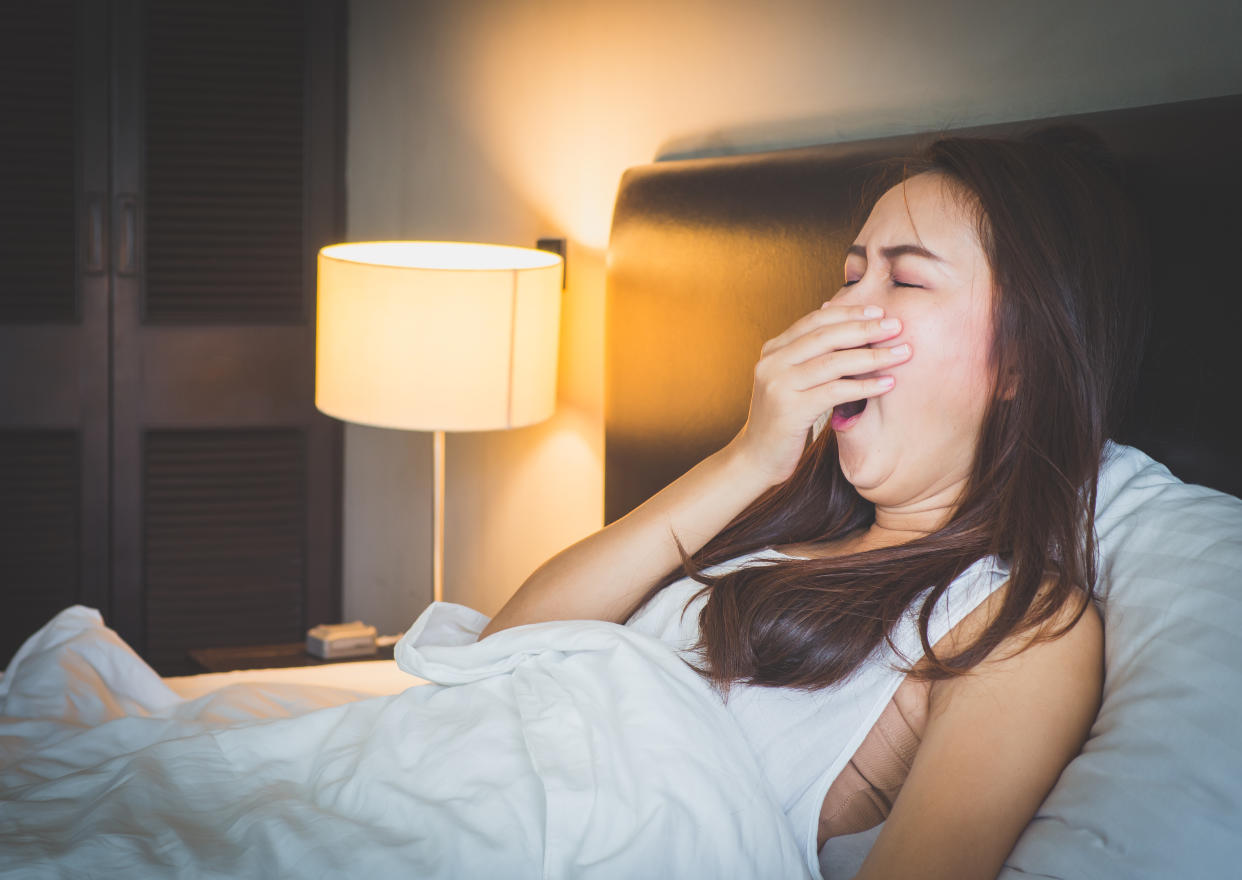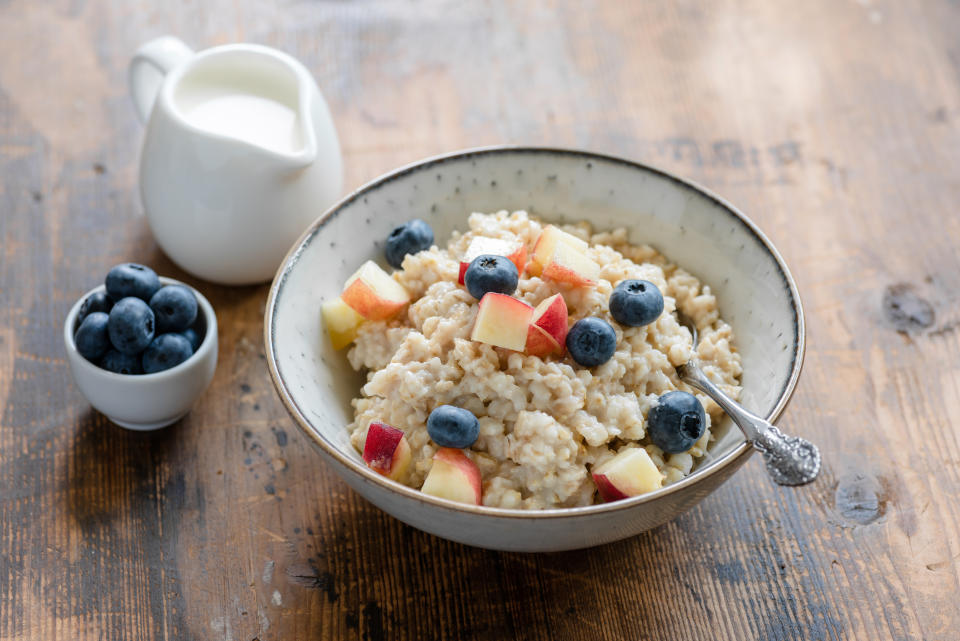How to wake with a spring in your step even when it's dark outside

As if the shrill ring of your alarm was not painful enough, waking to find it is still dark outside makes getting out of bed even harder.
And with the clocks going back an hour this Sunday, the mornings are only set to get gloomier.
But, with just a few lifestyle tweaks, it may be possible to wake with a spring in your step. Yahoo UK asks sleep experts how we can start the day feeling refreshed.

While many do not have an appetite first thing, Dr Nerina Ramlakhan - sleep expert at Silentnight - insists eating breakfast is “non-negotiable” if you want to become a “morning person”.
“People who eat breakfast have less difficulty falling asleep, wake up with more energy and are less inclined to hit the snooze button,’ she told Metro.
The medic recommends people eat within 45 minutes of waking to stabilise their blood-sugar levels and avoid energy “crashes”.
“Easing yourself into the day” may also be key to getting up on time.
“Gradually start to get up a little earlier,” Dr Ramlakhan said. “Allow yourself more time to get ready and prepare for the day.”
She recommends taking five minutes to reflect on what you need to do that day or even list what you are grateful for.
READ MORE: Schools in California to push back start times: Should UK schools start later?
While many wake reaching for their phones to check emails, respond to a text or see how well last night’s Instagram post is doing, Dr Ramlakhan advises we put our mobiles down until later in the day.
The bright blue screen of electronic devices may jolt you awake but it can also be “stressful for the brain” and puts you into “work mode” immediately, she said.
Many swear by coffee to get them going for the day ahead. While this may be non-negotiable for some, Dr Ramlakhan recommends people give it a miss later on in the afternoon.
Caffeine is know to inhibit melatonin, the hormone that regulates our sleep-wake cycle. To ensure a peaceful night’s rest, Dr Ramlakhan recommends avoiding coffee and tea after 3pm.
And while exercise may be the last thing you fancy during the wet winter months, staying active could also make it easier to get up in the morning.
Regular, gentle work outs have been linked to reduced levels of the stress hormone cortisol, while also stimulating the release of “feel-good” chemicals called endorphins. Together, these promote a deeper sleep, leaving you feeling refreshed the next day.
READ MORE: Sleeping less than six hours 'increases death risk'
In order to feel alert when your alarm goes off, Dr Irshaad Ebrahim - medical director of The London Sleep Centre - stresses we should focus on sleep quality over quantity.
“If you don’t get enough good quality sleep you will feel tired the next day, no matter how many hours you’ve had,” he told Yahoo UK.
For a peaceful slumber, Dr Ebrahim recommends not sleeping with the heating on, no matter how tempting it may be during these cold autumnal nights.
“Our body temperature drops and raises whilst we sleep, so try having a few layers of bedding so you can remove or add layers throughout the night,” he said.
READ MORE: Napping once or twice a week could help you live longer
To ensure a decent night’s rest all through the week, the medic also advises turning in and getting up at the same time every day. This comes after a survey by Phenergan Night Time found 43% of Britons catch up on sleep at the weekends.
“It’s tempting to get a few extra hours sleep at the weekend and many people look forward to the coveted Sunday lie-in,’ he said.
“However, changing your sleep pattern can knock your body off routine for the coming week. It’s best to try and stick to the same bed and wake-up time if possible.”
If you still find yourself struggling to get up, Dr Ebrahim recommends getting help.
“If you’ve had sleep issues for an extended period of time, or your sleeplessness is affecting your mental or physical health, you must seek advice from your GP,” he said.
“There can be many causes of insomnia and sleep issues, and speaking to a doctor is an important first step in getting help."


